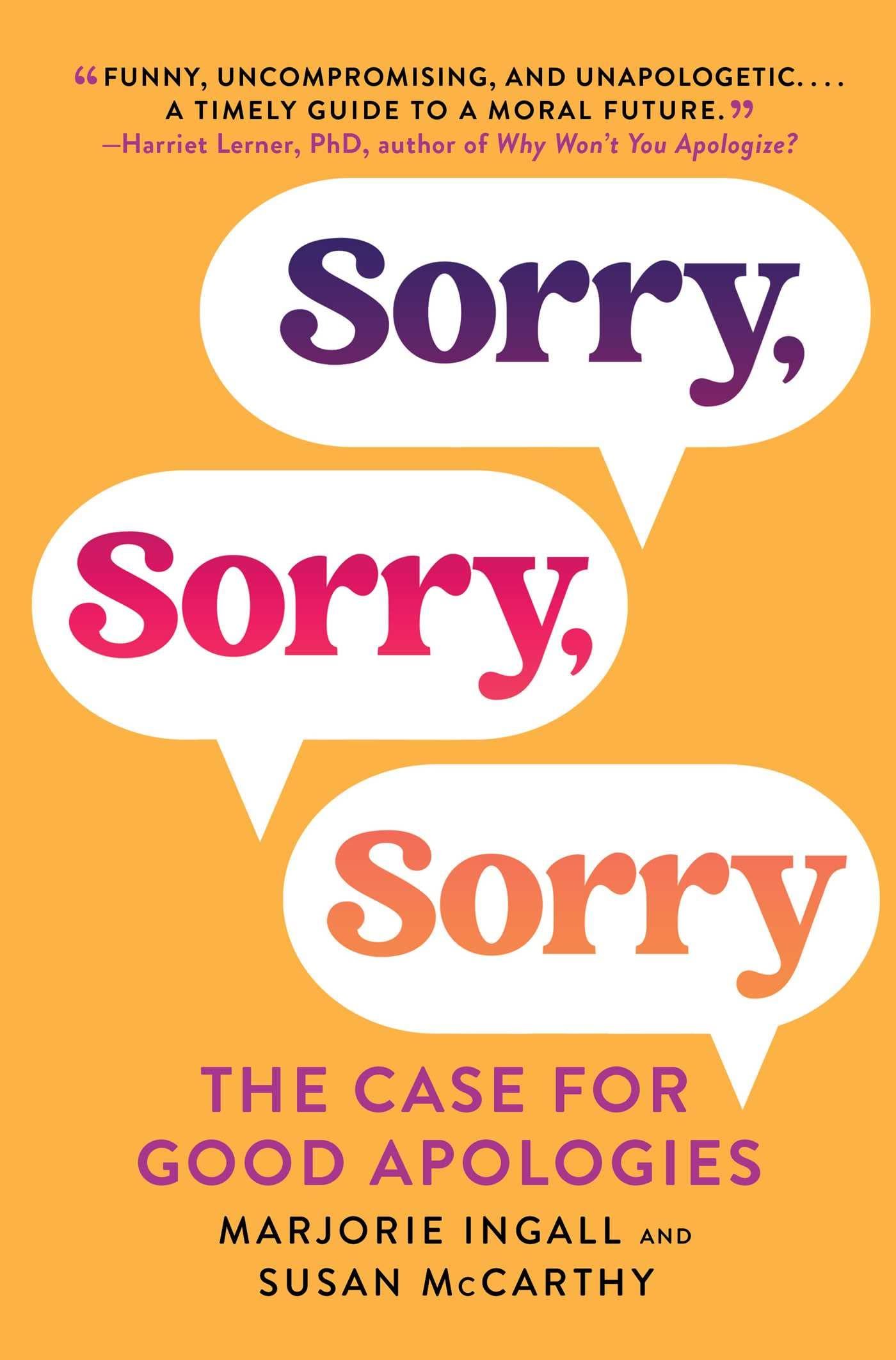Sourced from NPR | January 25, 2023, by Erika Ryan and Mary Louise Kelly
There's something powerful about receiving or giving a heartfelt apology.
Bad apologies, on the other hand, can be disastrous and often lead to more hurt.
This new book “Sorry, Sorry, Sorry: The Case for Good Apologies" draws from a broad range of research to explain the power of apologies, how we we don't always get good ones, and the best ways to tell someone that you're truly sorry.
Here are the six (and one half) steps to great apologies from co-authors Marjorie Ingall and Susan McCarthy:
Say you're sorry. Not that you "regret," not that you are "devastated." but say you are "sorry."
Say what you are apologizing for. Be specific.
Show that you understand why it was bad. Take ownership. Show you understand why you caused hurt.
Don't make excuses.
Say it won't happen again and what steps you are taking.
Make reparations. "I'm going to pay for the dry cleaning. Just send the bill to me. I am going to do my best to fix what I did."
These steps are relevant for anyone to use, children, adults even corporations. People want to be heard. Don't jump over them. Let the person you hurt have their say.
“These six steps are relevant for adults, for children, for corporations, for institutions, for governments —
And six-and-a-half is ‘listen.’ People want to be heard, and don’t jump over them. Let the person that you hurt have their say.”
Saying "sorry" may seem obvious but it doesn't always happen. Sometimes, people express feeling regret instead of a simple “I’m sorry.” And regret is always about how I feel. We're all regretful. But, sorry is about how the other person feels. When you apologize, you have to keep the other person's feelings at the top.
Which brings us to words to not say during an apology.
Ingall mentions words like "obviously" ("If it was obvious, you wouldn't have to say it") and "already" ("'I've already apologized' is a thing we hear a lot"), and the qualifiers like "sorry if..." and "sorry but..." and "I didn't meant to."
“Intent is far less important than impact when it comes to apologies”
Her co-author, McCarthy, adds that a bad apology can even make things worse.
If you make an apology along the lines of, ' You shouldn't even have a white sofa,' or, ' You shouldn't have been standing there," you’re making the coverup worse than the crime itself.
On the other hand, even a late apology can have tremendous healing power too. Read Marjorie Ingall’s story of a years-later post break up apology via the link below. It’s powerful.







